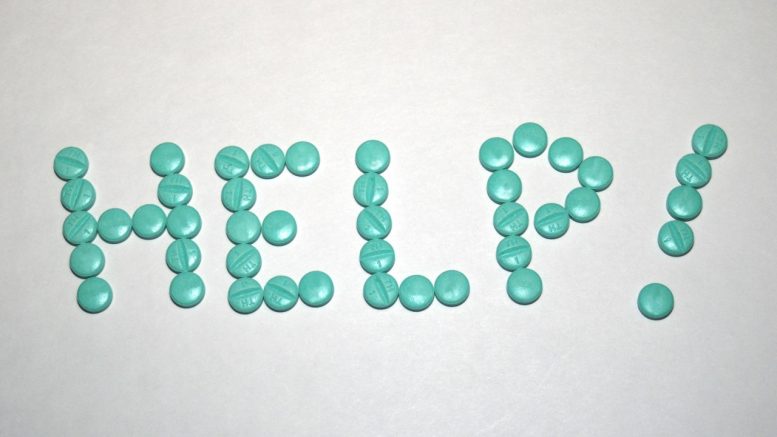Those consumers who cannot afford can get their chance to obtain prescription medications by using assistance programs run by a majority of pharmaceutical companies. The programs offer medications at low cost or absolutely for free. Interesting, that not only generics are available through the programs by also brand-name form of medications as well.
However, those programs are not for everyone, who cannot afford their prescription. The main requirement is to be a legal resident or the U.S. citizen, have no any drug coverage and in most cases, meet certain income requirements.
The president of Lash Group, which administers assistance programs for pharmaceutical companies, Tracy Foster, said that the income criteria would range from 200% to 400% of the federal poverty level, but in some instances, the poverty level could be higher. He added that Medicare Part D beneficiaries weren’t usually disqualified from assistance programs. Furthermore, most of the major companies have provisions only for Medicare patients. She also pointed out that the special application could be required under the specific program and sometimes patients should spend a specific amount of money under their Medicare Part D benefit.
Gary Pelletier, director and team leader for Pfizer Helpful Answers (a group of programs helping uninsured patients to get an access to company’s medications for a lower cost or at no cost at all), said that Pfizer helps Medicare Part D recipients through so-called “hardship exceptions”. For savings from Pfizer, patients should meet income eligibility criteria and after be qualified for the exception, he added.
Pharmaceutical companies’ program can assist not only those patients who are covered by Medicare Part D or have a low income but also those people who lost their job because of economic decline. For example, Pfizer launched the Medicines Assistance for Those who Are In Need (MAINTAIN for short) program in 2009. The program was developed to assist unemployed.
Here are some assistance programs and their credentials:
- Rx Outreach; nonprofit organization offering medications to uninsured residents as well as those who have limited coverage; available at www.rxoutreach.org
- The Partnership for Prescription Assistance; helps patients without drug coverage to get medications for a low price or at no cost at all (only qualified patients); available at www.pparx.com or by calling 888-477-2669
- RxAssist; part of the Center for Primary Care and Prevention at Memorial Hospital of Rhode Island, offers a database of the assistance programs; available at www.rxassist.org
- NeedyMeds; information resource that helps people to find assistance programs; available at www.needymeds.org
- The Partnership for Prescription Assistance; program that helps qualified patients without drug coverage to get medications at a low price or for free; available at www.pparx.com or by calling 888-477-2669
- Extra Help; program provided by Medicare to help patients with limited funds, who can’t afford to pay Medicare premiums or co-pays; available at www.ssa.gov/prescriptionhelp or by calling 800-633-4227
- The Senior Source; helps seniors in Collin and Dallas counties; available at www.theseniorsource.org/pages/prescription_drugs.html or by calling 214-823-5700
Before applying to those programs, patients should consider following recommendations:
- Don’t push and prepare some documentation
As most of the assistant programs need a proof of income. So it will be better if the patient could provide the program with a tax documentation or another proof of income needed.
- Pay attention when it comes to instructions; follow them precisely
Some programs are really complicated and have a lot of instructions. According to NeedyMeds, everything should be completed as directed, because if something is missing in the instructions the application could be denied or take more time to apply. In cases when there is no needed information, or if the blank can’t be filled, the patient should put “N/A” but don’t leave them unfilled.
- Don’t hesitate to ask questions
If a patient has any questions, there is no need to wait or act without answers. It will be better to contact the assistance program to get some information and the answers.
NeedyMeds states that there are a lot of different information needed to apply to the program, like requirements, medications, dosages and other. If the patient confused or if he doesn’t know anything about his eligibility, it will be better to ask. In some cases, if the patient can’t afford the medication and still is not qualified, it will be a great idea to ask a representative about hardship exception. Some companies like to review patients eligibility on a case-by-case basis.
- Plan the actions and look forward
Applying to the program takes some time, so a patient needs to think ahead to avoid medications run out. NeedyMeds recommended paying more attention to the refill process. Furthermore, some programs require a call from a patient’s health care provider for a refill.
- Talk to a physician
Forster said that most of the programs need a participation of a patient’s doctor as well as a doctor’s signature saying about the medication was actually prescribed.
This will help the program to ensure a company about the patient’s need.
- Make the applying process as easier as possible for a doctor
Help the doctor by filling the application as much as possible. It will be a great assistance to highlight credentials or directions for doctor’s sign. Providing a physician with an envelope with an address of the company will be a plus.
- Ask a healthcare provider to write an appeal letter
A letter from a healthcare provider could help a patient to explain his financial hardship. In any case, it will be better for the patient to have another chance to get an assistance.





Be the first to comment on "Pharmaceutical Manufacturers Offer Help For People Who Can’t Afford Their Drugs"